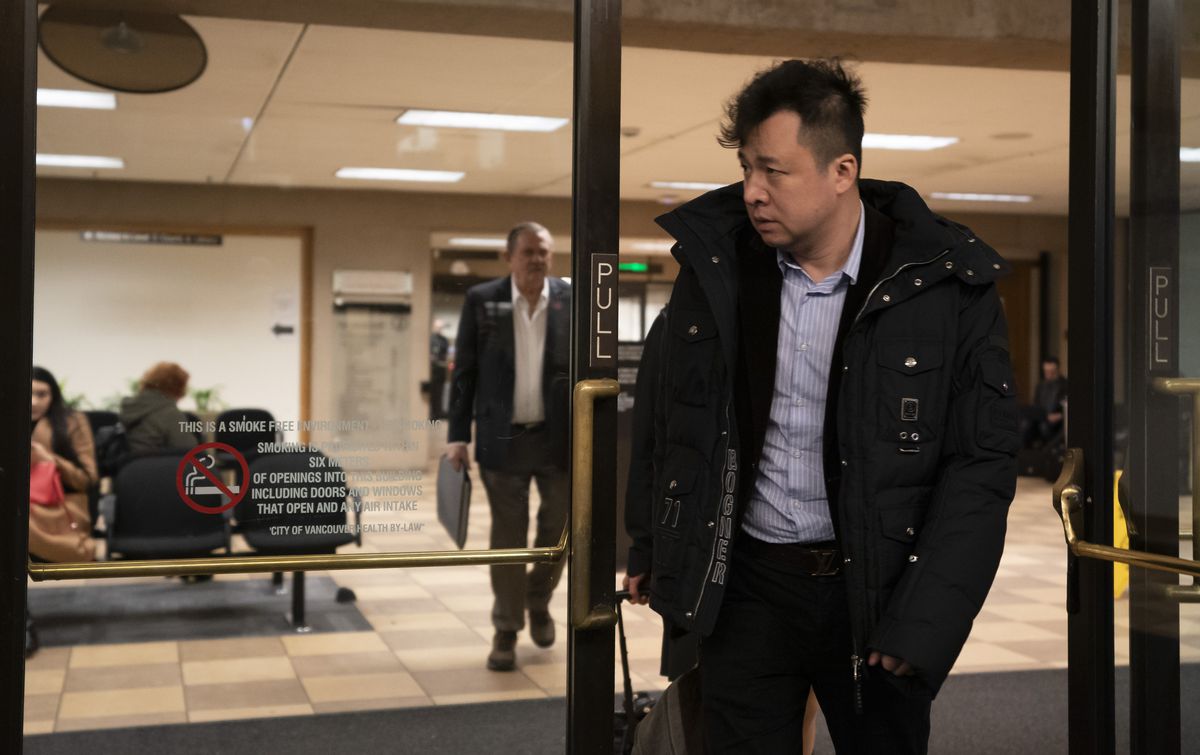Meng Wanzhou, one of Huawei’s top executives and the eldest daughter of the company’s founder/CEO, will be released on bail and kept under tight monitoring over bank fraud allegations, a Canadian court ruled today. The Star Vancouver reported the decision Tuesday, which comes after a growing wave of Chinese nationalist sentiment brought protesters out to demand Meng’s release and even led Vancouver residents offer up their homes to prove Meng wouldn’t be a flight risk.
As part of the deal, Meng must remain in British Columbia, provide a supervisor with telephone numbers, live at a $5.6 million home that was selected as her residence, and stay indoors from 11PM to 6AM every day. She’ll have to surrender her passports and be under the watch of a security company, while wearing an ankle bracelet.
“We have every confidence that the Canadian and US legal systems will reach a just conclusion in the following proceedings,” said a Huawei spokesperson in a statement to The Verge. “As we have stressed all along, Huawei complies with all applicable laws and regulations in the countries and regions where we operate, including export control and sanction laws of the UN, US, and EU. We look forward to a timely resolution of this matter.”
The decision today is a small step in a larger case that involves American suspicion toward the Chinese device maker, US sanctions against Iran, and all against the backdrop of tenuous US-China trade negotiations. Meng has been detained in Vancouver since December 1st at the request of US authorities, as they suspect her of violating US sanctions against Iran. She was apprehended in Vancouver on behalf of the United States during a flight transfer while flying from Hong Kong to Mexico.

Meng served on the board for a Hong Kong-based company called Skycom, which allegedly did business with Iran between 2009 and 2014. The Canadian prosecutor alleged that US banks worked with Huawei at this time, so Iran sanctions were indirectly violated, and Meng therefore committed fraud against these banks, according to the prosecutor. The other piece of the puzzle is that Skycom was basically Huawei under a different name, according to the prosecutor. We’ve reached out to Huawei for comment on today’s decision.
The United States issued an arrest warrant for Meng through a New York court on August 22nd, which is what Canadian authorities acted upon. The US has 60 days from the time of Meng’s arrest on December 1st to provide Canadian courts with evidence and intent, including the decision to make a formal extradition request. If the US doesn’t provide this paperwork, Meng will be let go.
US President Donald Trump told Reuters on Tuesday evening that he might “intervene” in Meng’s case if it serves national interests, though he didn’t specify in what way. “If I think it’s good for what will be certainly the largest trade deal ever made — which is a very important thing — what’s good for national security — I would certainly intervene if I thought it was necessary,” he said, noting that he hasn’t received a call on the situation from Chinese President Xi Jinping yet. “They have not called me yet. They are talking to my people. But they have not called me yet.”
The judge ruled today in favor of releasing Meng on bail mainly after determining she likely wouldn’t be a flight risk. Meng only has two valid passports and that the zones she’s permitted to travel in will exclude the Vancouver airport. The judge also found the argument that she’s been avoiding the US purposefully to avoid prosecution to be “speculative and without any reliable foundation.” Prosecution had previously alleged Meng and Huawei became aware of the US’ investigation into the company’s subsidiaries in April 2017 and subsequently stayed away, even though Meng has a son studying in Boston.
Part of the ongoing debate during the bail hearing was over which company would monitor Meng and supply a monitoring bracelet if necessary. Meng’s lawyer suggested a bracelet that would be connected to the Rogers network. Rogers has a partnership with Huawei.
China’s response to the arrest and subsequent detainment of Huawei’s CFO has been full-on outrage in the form of forceful opinion pieces in state-run media. For instance, an op-ed from China Daily today reads: “Meng’s detention, together with Washington’s actions vis-à-vis other international incidents and events including the death of Jamal Khashoggi, a Saudi Arabian journalist, reflects the US’ disrespect for both reason and international law.”
At the same time, a former Canadian diplomat has gone missing in Beijing, in what some suspect to be retaliation, according to reports from today, and Chinese authorities have yet to clarify what his status is.
“I was wondering who they would go after in retaliation (for #Huawei case)… they may have come under conclusion that someone who was a diplomat who worked for the Canadian government would get the attention of Ottawa,” former ambassador tells us. https://t.co/sS9a6rV5Sw #Kovrig
— Joanna Chiu 趙淇欣 (@joannachiu) December 11, 2018
Update December 12th, 1:32AM ET: This article has been updated with a statement from the US President and Huawei.
https://www.theverge.com/2018/12/11/18134938/huawei-cfo-meng-wanzhou-bail-house-arrest-us-china

